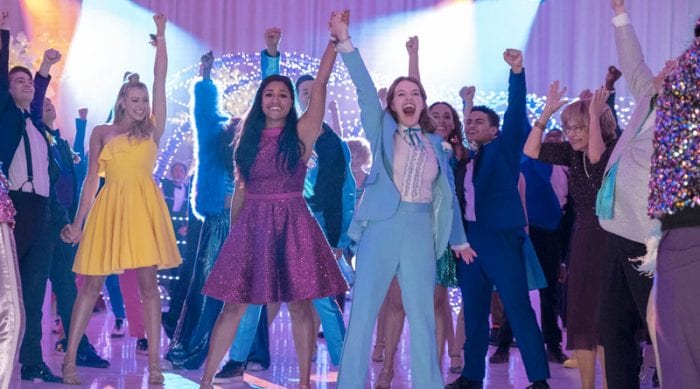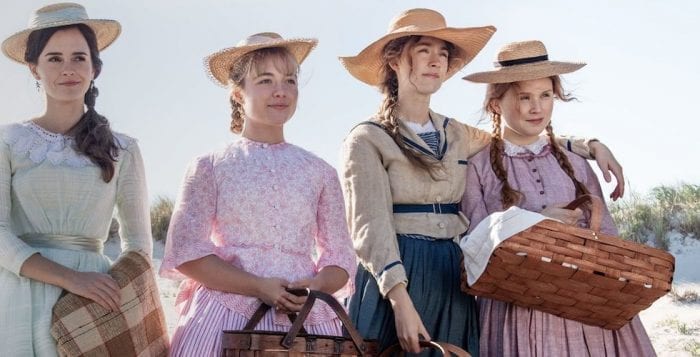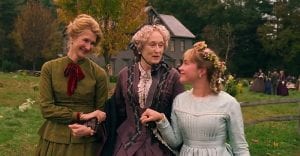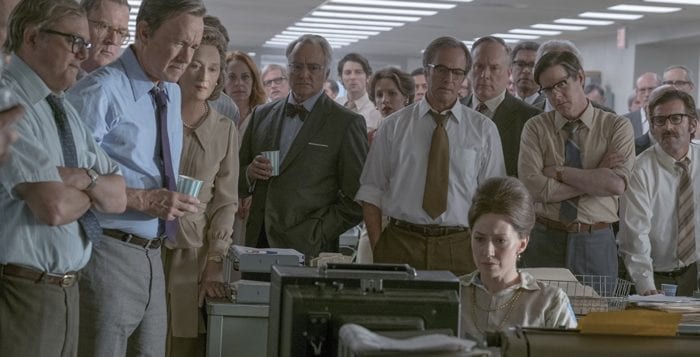Reviewed by Jeffrey Sanzel
In 2018, the musical The Prom made its Broadway debut at the Longacre Theatre. With music by Matthew Sklar, lyrics by Chad Beguelin, and book by Bob Martin and Beguelin, it dealt with a group of narcissistic Broadway actors who are trying to change their unlikable images. Looking for a cause, they select a lesbian high school student who is denied the right to take her girlfriend to the prom. The quartet of Broadway performers travel to the conservative Edgewater, Indiana, where, in an attempt to help, they wreak havoc. Ultimately, it all works out in the way that musical comedies do.
There was a great deal of feel-good material and a lot of messages about understanding and tolerance in the show. Casey Nicholaw strongly directed the production, if leaning a bit into the over-the-top humor alternating with easy sentimentality. His choreography was engaging and vigorous, often leaning towards the athletic. The original cast was made up of Broadway veterans who brought out the best in the material. For the most part, the reviews were good but it failed to find an audience and closed within the year.

Ryan Murphy, who was one of the Broadway producers, has now directed a film version which has been released on Netflix and is also currently playing in movie theaters. Murphy recruited Martin and Beguelin to write the screenplay with the majority of the score intact. They have opened it up, taking advantage of a range of locations to give it more variety and a more kinetic energy. There are also some good flashbacks that enhance the story as well. Murphy has shown the same care and whimsy here that he did with the recent Netflix miniseries Hollywood, and the result is an entertaining two hours.
Murphy has replaced the entire Broadway company with well-known film and television personalities. So many cinematic stage transfers have been ruined by stunt casting that fails to preserve the integrity of the source material. That said, Murphy has assembled an excellent company who deliver.
Meryl Streep is delightful as the Broadway diva, Dee Dee Allen. She is outrageous but grounded in her own selective reality and manages to make Dee Dee both insufferable and likable, often simultaneously. Her singing voice is solid, and she manages the big numbers well enough. Andrew Rannells is a younger, edgier take on the Julliard-trained Trent Oliver; he has real musical theatre chops (The Book of Mormon) and a hipper approach to the character.
Keegan-Michael Key evokes the right balance of controlled concern and star-struck fan as the principal who is enamored with Dee Dee. Kerry Washington brings snap and spark to the outraged PTA president who is doing all she can to keep the prom “straight.” Kevin Chamberlin is charming as the long-suffering agent.
Only Nicole Kidman seems lost as the perpetual chorus girl, Angie Dickinson. Her vocals are adequate but she never finds her way with the character. It is also clear that she is uncomfortable with the Fosse style and it undermines her big number — “Zazz” — and ultimately the character’s core.
Jo Ellen Pellman has a beautiful voice and winning presence as Emma Nolan, the girl who just wants to go to the prom. She shines through the entire film — one just wishes she wasn’t smiling the entire time; the absence of angst makes the final moments not quite as cathartic. Ariana DeBose as Alyssa, the daughter of the crusading PTA president, ably shows her internal conflict as Emma’s closet girlfriend and delivers in her musical number, “Alyssa Greene.” The ensemble of young singer-dancers handle the big numbers well and have a nice ease about them.
But if the film belonged to any one performer, it would be James Corden as Barry Glickman, Dee Dee’s costar in the failed Eleanor Roosevelt musical that incites the entire plot. He is warm and funny but truly vulnerable. He is completely at home as both a singer and a dancer, making his numbers some of the best moments. In many ways, it becomes just as much his story as Emma’s.
The film has a strong start, moving quickly from place-to-place and song-to-song, everything cast in a musical comedy glow. There are many excellent production numbers that are hilarious — “Changing Lives,” “It’s Not About Me,” and “Love Thy Neighbor” — and just plain joyous —“Tonight Belongs to You.” Murphy wisely retained Nicholaw as choreographer.
It is unfortunate that the second half of the movie sags a bit with dramatic scenes that have been introduced to give both weight and extended background to Barry and Dee Dee. While it gives the two actors an opportunity to emote, the tonal shift and the additional time do nothing to drive the action forward.
These additions necessitated the trimming of several numbers, most notably “The Acceptance Song,” done at a monster truck rally.
This is a minor quibble in an overall enjoyable outing. The Broadway quartet learn and grow, just as we know they would. Emma and Alyssa celebrate their love with the exuberant “It’s Time to Dance” — as celebratory here as it was on Broadway.
If people take exception to the ease with which minds are changed and bigotry is overcome, it should be reminded that this is the world of fantasy. Just as with his Hollywood, Murphy offers us not necessarily the world we have but perhaps the world we can hope for — and some really terrific production numbers along the way.
Rated PG-13, The Prom is currently playing in local theaters and on Netflix.












